May 1, 2:00 pm:
May 2, 6:00 pm:
May 6, 9:00 am:
May 6, 12:00 pm:
May 7, 6:00 pm:
May 7, 6:30 pm:
Halifax Town Office
May 13, 4:30 pm:
May 13, 5:30 pm:
May 14, 6:00 pm:
May 21, 4:00 pm:
May 23, 5:00 pm:
May 30, 6:30 pm:
Townshend Town Hall
**All Committee meetings take place in the WRC Conference Room unless otherwise noted.
**All meetings are subject to change, please check the website for updates.
|
UPCOMING GRANT OPPORTUNITIES
National Endowment for the Arts
Art Works
DEADLINE July 11, 2019
DEADLINE: August 8, 2019
New England Grass Roots Environmental Fund
DEADLINE: Rolling (Seed Grant)
USDA Rural Development - Community Facility Loans
& Grants
DEADLINE: Ongoing (contact USDA office)
US Environmental Protection Agency - Recreation Economy for Rural Communities
DEADLINE: May 31, 2019
Vermont Agency of Commerce and Community Development
DEADLINE: Rolling
Vermont Arts Council
DEADLINE: June 3, 2019
DEADLINE: Rolling
DEADLINE: May 31, 2019
Windham Foundation
DEADLINE: May 15, August 14 & November 13, 2019
Windham Regional Commission
DEADLINE: Rolling
DEADLINE: Rolling
Vermont Agency of Transportation
DEADLINE: June 28, 2019
For additional information about
grant possibilities for your projects please contact Susan Westa at
swesta@windhamregional.org
.
|
|
Upcoming Conference & Training Opportunities
May 19 & 20, Brattleboro
May 23, Mt. Snow
June 5, Montpelier
June 6 & 7, Montpelier
|
|
Dry Hydrant Grants Available
Are you a town or fire department looking to improve fire suppression capabilities? If so, you may want to check out grant funding opportunities from the Vermont Rural Fire Protection Task Force (formerly the Dry Hydrant Grant Program).
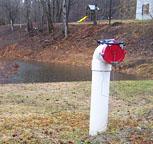 The 2019 program offers grants up to $5000 for installation of new dry hydrants and other types of water supplies, along with repair, upgrade, replacement, or relocation of existing rural water supplies. New this year is funding for drafting site development.
The next round of applications deadlines are June 1st and August 1st, 2019.
More information and the entire application packet can be found online
here.
Questions should be directed to the Rural Fire Protection Program at
dryhydrantguy@yahoo.com
or 802-828-4582.
|
|
Housing for Everyone
Are you concerned about housing in Windham County? In your town? Housing supply is very limited in many of our towns and the costs of housing have increased tremendously in recent years. If you'd like to learn more about what your community can do to provide housing that meets the needs of today's residents, come to WRC's next Full Commission Meeting on June 25
th
at 6:00 PM (location TBD).
Susan Westa, WRC's Community Development lead, will present an overview of strategies that your community can implement, as well as tools - regulatory and non-regulatory - available in Vermont. Elizabeth Bridgewater, Executive Director of Windham & Windsor Housing Trust will share an overview of their programs, as well as her organization's vision for providing permanently affordable housing solutions for Southeastern Vermont. Please join us to learn what you can do!
|
Gearing Up for Census 2020
No fooling, Census Day-April 1, 2020-is less than a year away. What does that mean for us in the Windham Region? WRC has been part of the Participant Statistical Areas Program, reviewing the boundaries of Census Tracts, Block Groups, and Census Designated Places. We have been coordinating with towns and will be recommending changes to the Census Bureau.
If you're looking for a job with the Census Bureau for the 2020 Census, they are hiring for temporary field positions in every county in Vermont.
|
Executive Director
Office Manager
Finance Manager
Transportation Planning Tech
Senior Planner
Planner
|
|
 |
|
|
Windham Wood Heat Projects Gain Spotlight Across State Lines
 |
|
 |
Green Street School
|
Two advanced wood heat projects in Windham County funded in part by the Windham Wood Heat Initiative have been highlighted in the four-state effort to positively message automated wood heat. The Green Street School in Brattleboro and the Windham and Windsor Housing Trust development Putney Landing in Putney are both featured as "Stoked Stories" on Feel Good Heat's website.
|
|
 |
|
Putney Landing
|
 |
Feel Good
Heat aims to promote automated wood heat by raising awareness of the accessibility of the technology and the basics on how the fuel source helps our local forests and economy. The "Stoked Stories" are photo journals of real installations or folks involved in the fuel supply chain which serve as a testimony to the technology. Check out the
website here:
feelgoodheat.org.
|
|
Important Brownfields Projects Moving Forward
Two major projects that receive funding through WRC's Brownfields Cleanup Revolving Loan Fund have made significant strides over the last few months. WRC secured this funding through the U.S. Environmental Protection Agency.
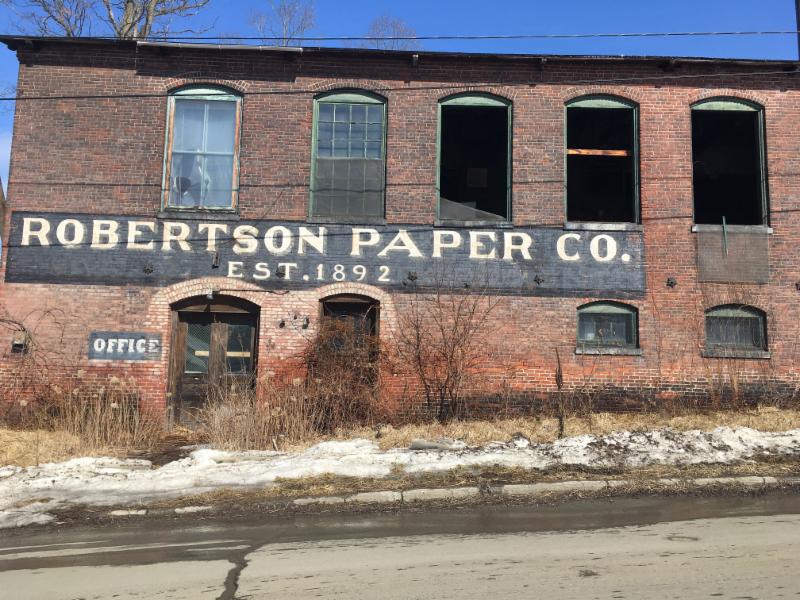
Demolition
is underway at the Robertson Paper Mill site on the Island in the Village of Bellows Falls, Town of
Rockingham.
The building fell into disrepair over the years and contamination was present due to a history of industrial uses. Once the building is demolished and the site is cleaned up, it will be available for redevelopment.
A Brownfields Economic Revitalization Alliance, BERA, meeting was held in March
. The goal of this program,
which brings together all project stakeholders, is to help bring unused or underutilized brownfields back into economic productivity.
Another important brownfields project in southern VT, the Putnam Block in Bennington, has also made significant progress. This complex redevelopment project has almost completed the brownfields work funded through WRC's Revolving Loan Fund program. Once cleaned up, the block will be redeveloped for a mix of uses, including residential, commercial, office, and institutional uses. This project received funds from the VT ACCD Brownfields Program, the Community Development Block Grant Program, and the VT Downtown and Village Center Tax Credit Program, as well as from private individuals and local institutions through the Bennington Redevelopment Group and the Bennington County Industrial Corp.
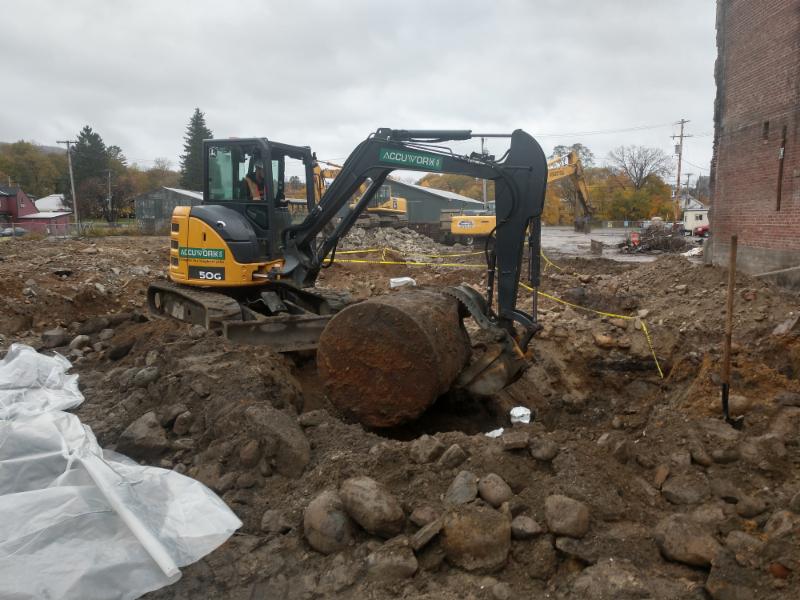 These complex projects require many stakeholders and funding sources to be successful. It takes a village to redevelop an historic downtown block. For more information and redevelopment plans, see
http://putnamblock.com/.
These complex projects require many stakeholders and funding sources to be successful. It takes a village to redevelop an historic downtown block. For more information and redevelopment plans, see
http://putnamblock.com/.
|
WRC Project Showcased at the 2019 Leahy Summit at the ECHO Center
On Friday, April 5
th
, staff planner Emily Davis lead a panel discussion with her project partners at the 2019 Leahy Center Environmental Summit at the ECHO Center in Burlington. Hosted by the VT Clean Water Network, the Leahy Summit is a biennial clean water networking event designed to pull together clean water partners involved with community resilience, policy, funding, project development, and clean water implementation. Starting in response to the need for a more holistic approach to watershed planning following Tropical Storm Irene, each Leahy Summit has a theme. The theme for 2019 was: "The Alchemy of Arts & Science."
Emily Davis and Sara Coffey of Vermont Performance Lab were asked to present "The Confluence Project," a collaboratives creative placemaking project that began in 2017 and provided community programming through the summer of 2018.
The Confluence Project was an ambitious experiment in creative placemaking that brought together the arts, youth, community groups, regional planners, and educational institutions at a civic dialogue table to take an interdisciplinary approach to the study of our rivers, our land, and our watersheds.
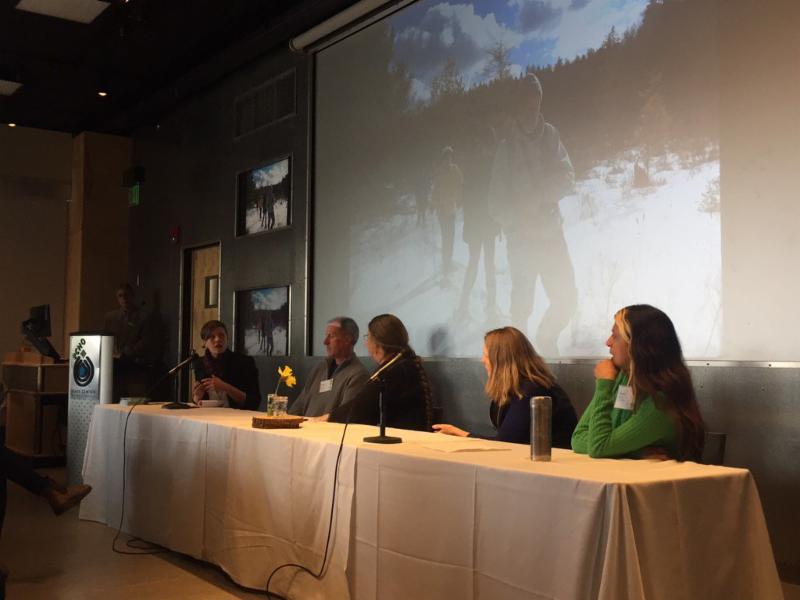
The work linked Vermont Performance Lab's artist residency program with the community development and watershed planning work of the Windham Regional Commission. Through public programs and integrated art-science residencies and curriculum,
The Confluence Project supported three local schools, built understanding of our local watersheds, fostered a new model for civic engagement, and helped create deeper engagement around watershed planning and place-based identity.
During the Leahy Environmental Summit, Emily and Sara were joined by their core project partners: teaching artists Judy Dow, Gowri Savoor, and Lida Winfield; along with Steve Libby of the Vermont River Conservancy and Kathy Urffer of the Connecticut River Conservancy. Emily opened the panel by setting the stage of how the project was started, and the foundational support the Windham Regional Commission and the Vermont Performance Lab were able to provide for this innovative work.
The group shared their stories and experiences of linking the arts and environmental science as a powerful way to promote watershed study and civic engagement around environmental issues. The panel was held in the morning, as a way to ignite enthusiasm, provide inspiration, and be a model for what is possible in Vermont. Emily was able to use this project success story as a way to promote the good planning work of the WRC, and advocate for continued resources to support these efforts in the Windham Region municipalities.
|
WRC Presents Basics of Town Planning Training
When:
Thursday, May 30th 6:30-8:00 p.m.
Where:
Townshend Town Hall
Who: All
Town Officials, as well as anyone else, who would like to know more about town planning.
Questions? Event flyer with more info can be found
here.
For additional information contact
John Bennett at
(802) 257-4547 ext. 110
.
|
|
New Brattleboro Road Map Now Available
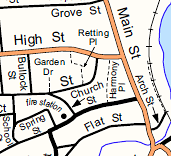
At long last, WRC has completed a large version of a Brattleboro road map (3'x5'), with every named road and street in town, public and private, on one page, with no insets. The map also includes a name index to help you locate those streets you've never heard of before. Lisa Donnelly of the WRC staff gets much of the credit for being the cartographic contortionist, fitting nearly 340 road names into Brattleboro's very non-linear street network. Interested in a smaller size? WRC also has an 11x17-inch version, on two pages with insets.
PDFs of both maps are available on the WRC website
here. Anyone can take the PDFs to a commercial establishment for printing, or WRC can print out copies of the large map for a small fee. Thanks to the Brattleboro Planning Services Department for reviewing the map.
|
New Maps of Vernon Released
Have you ever wondered where Island Meadow Brook is? How about Aspen Lane, or the Witches Gutter? Windham Regional Commission has completed new base maps of Vernon that shows these features and more. The maps show all roads, buildings, streams, parcels, and public lands in town.
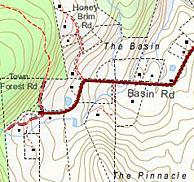
One version has 20-foot contours, and another has an air photo background. The maps are 30x36 inches. A smaller road map, 11x17 inches in size and recently updated, is also available. WRC has provided copies of these maps to both the Vernon Elementary School and the town office. For more information, contact Jeff Nugent at
WRC,
jnugent@windhamregional.org
.
The road map can be downloaded
here.
|
New Collaboration Around Nuclear Plant Closures & a Reminder of the Importance of Economic Development Planning
A new effort is underway to bring federal agency attention to the economic and social impacts of nuclear plant closures. This effort led by the Nuclear Decommissioning Collaborative i
s a project of the U.S. Department of Commerce Economic Development Administration. I was invited to participate in the inaugural meeting of the Collaborative in Washington, D.C. in April. I was joined by the Mayor Al Hill of Zion, Illinois and Rochelle Becker, Executive Director of the Alliance for Nuclear Responsibility in California, to represent the perspective of host communities in a convening of staff from multiple federal agencies including the Department of Commerce, the U.S. Economic Development Administration, the Department of Energy, the Nuclear Regulatory Commission, the U.S. Department of Agriculture, the Environmental Protection Agency, and the U.S. Department of Housing and Urban Development. Much of the discussion focused on what and how existing programs could be brought to bear on the needs of host communities, but we also discussed the problem of spent nuclear fuel remaining on plant sites once the plant itself has been decommissioned. This is a federal problem, as the absence of a federal policy solution to the permanent storage of spent nuclear fuel and high-level nuclear waste results in a local burden. This prompted discussion of how nuclear plant host communities might engage with nuclear waste receiving communities.
We also discussed the need for a more comprehensive nuclear plant decommissioning policy that addressed the full range of issues presented by a nuclear plant closure beyond the narrower focus of radio-logical health and safety. The Windham Region is held up nationally as an example of how to plan for a nuclear plant closure as concerns about Vermont Yankee's license renewal, and later its decision to cease operations, prompted greater urgency around the development of a comprehensive economic development strategy, and increased collaboration with counterparts in Massachusetts and New Hampshire that serve communities with strong socioeconomic ties with the plant. This nuclear decommissioning policy discussion is still relevant to the Windham Region, but it's also a reminder of the need to plan for greater economic resilience at all levels.
An update to the southeastern Vermont Comprehensive Economic Development Strategy (CEDS) has just been completed, and has been expanded to include Bennington County to create a Southern Vermont CEDS. This will lead to the creation of a Southern Vermont Economic Development District through the U.S. Economic Development Administration, which will enable greater access to federal resources. But more importantly, it provides a guide to current thinking about opportunities to grow the economy of the southern tier of the state. The project list for inclusion in the CEDS is updated on an annual basis, and the CEDS itself is updated every five years.
Planning of all types is an iterative process, and economic development planning is necessarily a never-ending process to reflect local, regional, national, and international changes to underlying assumptions about opportunities and challenges. Among these is climate change in a region whose residents and communities are very economically dependent upon seasons and weather. The WRC will explore, in collaboration with the Brattleboro Development Credit Corporation which serves as the regional development corporation for the Windham Region as a whole, how to more fully-engage communities in economic development discussions. We need to apply the lessons-learned from our anticipation of, and preparation for, the closure of Vermont Yankee to the economy of the region as a whole.
|
|
|